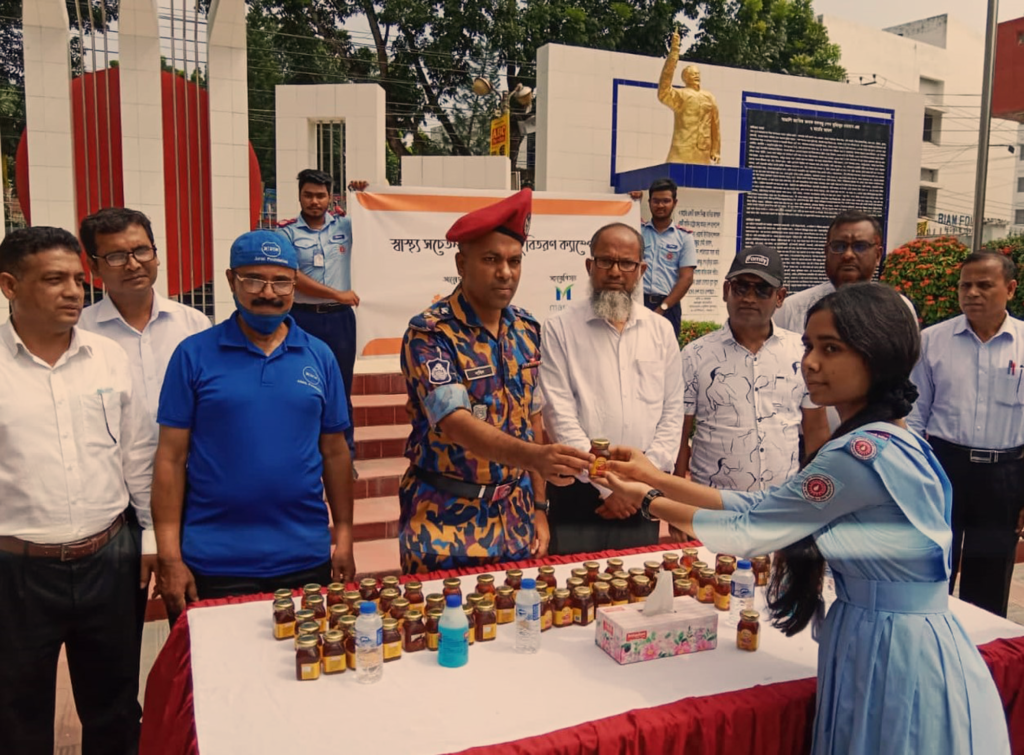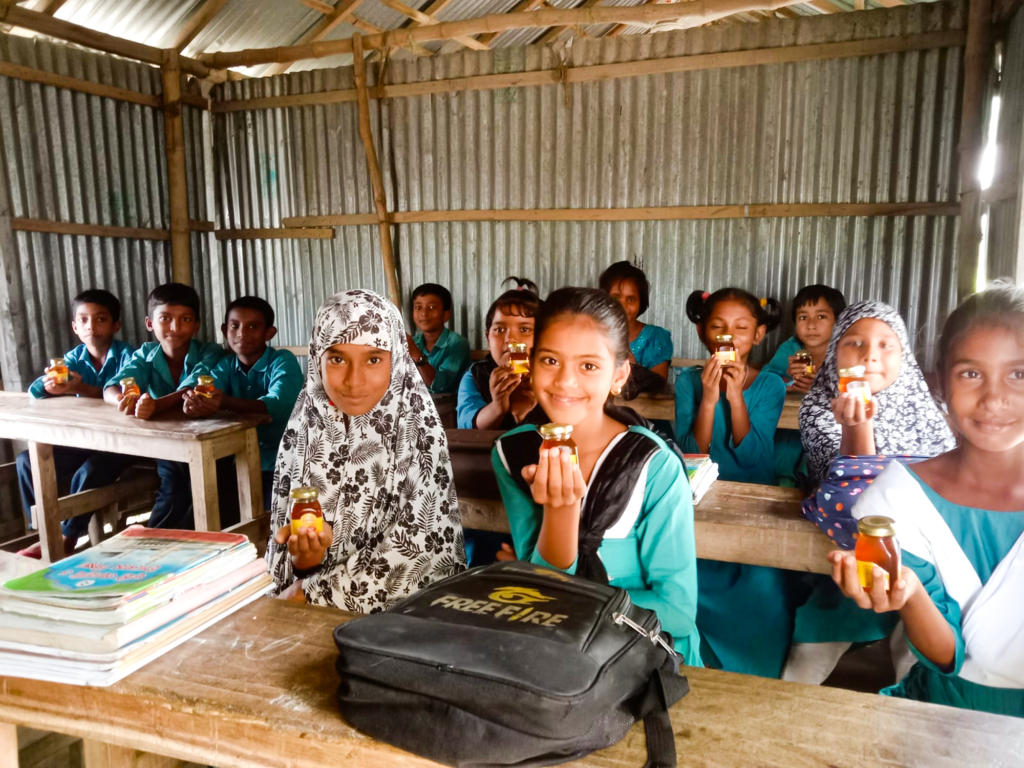Honey, a natural sweetener, is rich in antioxidants and possesses antibacterial properties, boosting immune function and aiding in overall health. Its consumption supports respiratory health, making it beneficial for students prone to seasonal allergies or coughs. The natural sugars in honey provide a sustained energy release, promoting better concentration and cognitive function in the classroom. Additionally, honey’s anti-inflammatory properties contribute to digestive health. By incorporating honey into the students’ diets, the initiative not only adds sweetness but also nurtures their health, fostering a foundation for sustained well-being.
Amal Foundation, in collaboration with Marico Bangladesh Ltd, undertook a proactive role in executing this initiative. The foundation coordinated the distribution logistics, ensuring that honey reached various schools, madrasas, university halls, and residential hostels both within and outside the capital city.
The project yielded successful outcomes, with approximately 20,000 bottles of honey distributed across a spectrum of educational institutions and residential spaces. This wide-reaching distribution not only created awareness about the nutritional value of honey but also positively impacted the dietary habits of the targeted youth demographic. Both the foundation played a pivotal role in designing and delivering educational materials to accompany the honey distribution, emphasizing the importance of incorporating honey into daily diets for health benefits.



